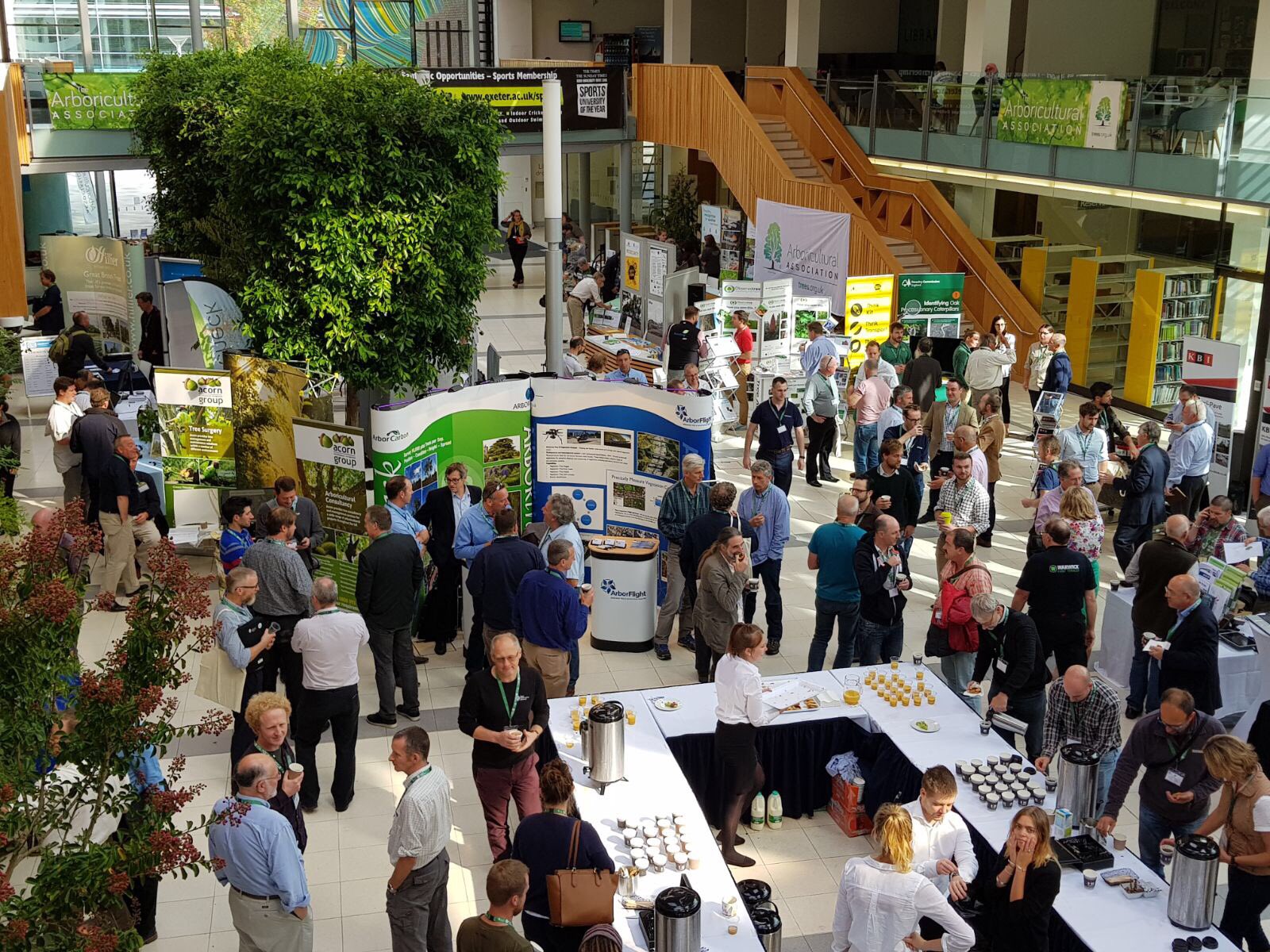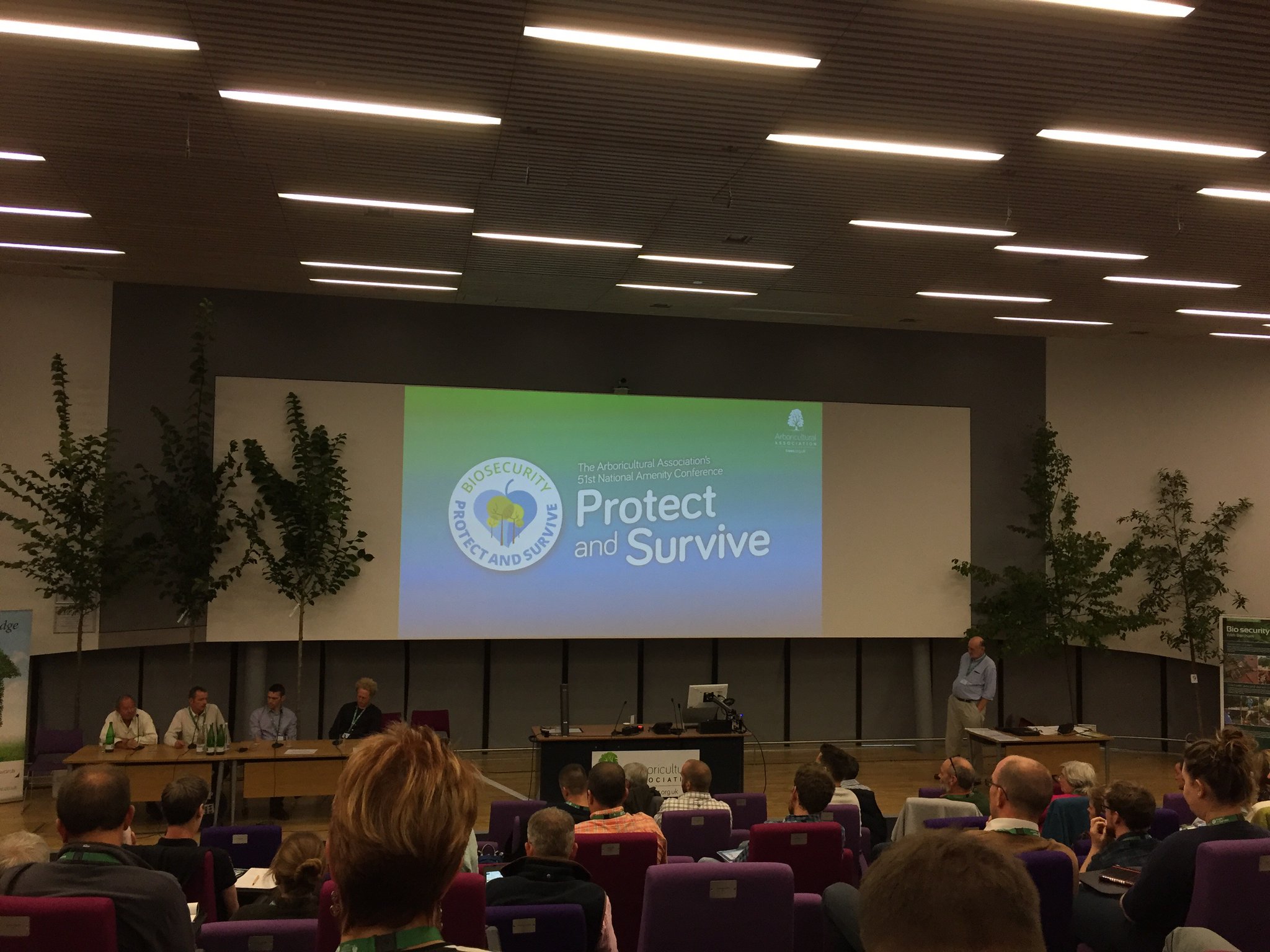This week's Arboricultural Association amenity conference gave delegates a range of perspectives and advice on how to minimise the seemingly relentless spread of exotic tree pests and diseases.

"Experts are needed to spot problems before they become catastrophes," Forestry Commission chairman Sir Harry Studhome said in his keynote address. "Arboriculturists are in a unique position in this as they see a wider range of trees than anyone else, and trees in towns and cities are more valuable but also more vulnerable."
The Forestry Commission’s funder Defra "is committed to protecting borders, will have spent £37m by 2019 on tree research and has stringent plans should new pest and disease problems such as Xylella arise," he added. "We need good biosecurity. Our isolation makes it fractionally easier to protect our borders but we can never be 100% safe. Defra’s plant health team don’t just monitor trees, they will act to block pathways, such as ash firewood."
On a theme taken up by other speakers, Studhome said: "We also need to plant pest- and disease-free trees, and many AA members now buy or specify trees, ideally UK-grown, from respected suppliers — and we need to be researching and building resilience. Early detection is key." Urging delegates to follow the commission’s "Keep it Clean" protocol, he said: "Biosecurity has to become second nature to all of us."
Global threats
According to Professor Mike Raupp of the University of Maryland: "The global economy means we now have a global biota." He explained: "While the number of pest and disease introductions continues to rise, the rate of introduction has been fairly constant since the 1860s when international trade first took off. We aren’t going to reverse this trend."
Invasive pests "tend to be generalists", with the brown marmorated stink bug an extreme example, and thrive in "defence-free spaces" lacking the parasites and diseases of their native environment, he said.
He urged practitioners to "diversify urban landscapes", saying: "After Dutch elm disease we turned urban monocultures into bi-cultures of maple, which is vulnerable to Asian longhorn beetle, and ash. Now 50% of US urban trees are at risk."
But on this point Arboricultural Association chairman Keith Sacre, who is also sales director at Cambridgeshire nursery Barcham Trees, said: "We are being asked for a diverse range of trees but we can’t do so economically. We don’t know from one year to the next what trees you will want. Personally I think it’s an illusion that UK nurseries can be self-sufficient. We will have to continue to import stock if we are to have a diverse species mix in our cities."
But this is a very different proposition from tree buyers importing stock directly from overseas, who "should be made to feel like pariahs", he said, because this gives no opportunity to quarantine and inspect plants over time — a policy pursued at Barcham "at a cost of £72,000 in lost sales".
He added that on BS 8545 on landscape trees, on which Sacre led the development: "We wanted to get in something about biosecurity but were told we couldn’t threaten freedom of trade." On this, City of Melbourne urban sustainability manager Ian Shears said: "We know what trees we will plant for the next decade, so can have them contract-grown."

Nursery trade
For the forest nursery trade, the Woodland Trust has developed its own UK Sourced & Grown Assurance (UKSG) scheme, "which meant we shifted to contract-growing, so we owned the whole process including seed collection", project leader Dudley said, adding that nearly 57 million trees have already been grown on 19 nurseries under the scheme. "We can say where a tree has been for its whole lifetime," he added. "This is an opportunity for UK nurseries. It’s not just for native trees, it can apply to exotics too."
Similarly in the heritage sector, the National Trust has begun a three-tier awards scheme to credit its properties’ plant health standards. "Our properties have a lot of autonomy so applying standards nationally is difficult," said plant health and conservation consultant Simon Toomer.
"You need top-level sign-in and it’s now part of properties’ overall ‘score’. The National Trust has ‘instructions’ on plant health which include not putting plants for retail next to plants for the garden." This has been backed up by a DVD "which has been useful for retail staff", he said.
"Part of our integrated pest management is trying to diversify away from box, which some gardens are quite puritanical about. Alternative species aren’t always available in the quantities we need so we have had some plants contract-grown at Hillier."
At municipal level, Professor Ted Wilson of the University of Toronto described the invasion of emerald ash borer on Canada’s largest city as "an ecological tsunami". The city has around 800,000 ash trees, or 8.4% of its tree population, though being on the whole young they make up just 2.3% of its tree canopy.
When attempts to create a "firebreak" against the pest in Toronto failed, the decision was made to protect 16,000 of the most prominent ash trees, with a programme of injecting the Canadian-developed insecticide TreeAzin, initially once every three years then upped to two years in three, he explained.
"Detection of emerald ash borer isn’t easy," said Wilson. "The UK will have to work hard to keep it out." Session chair and head of Kew Gardens’ arboretum Tony Kirkham added: "I hate to think what will happen if or when it gets here."
Earlier in his opening address to the conference, related by video, HRH the Prince of Wales posed the question: "Where will our next biosecurity threat come from? Canker stain of plane? The emerald ash borer, which would almost certainly finish off any ash that survived the current Chalara outbreak? Asian longhorn beetle?
"The list is long and profoundly depressing, which is why I was especially keen to encourage you in your vital work. We cannot hope to escape all such pest and diseases but with a collaborative approach and effective sharing of information we may avoid the most severe of the potential threats."
Arboricultural Association chief executive Stewart Wardrop said: "Having the prince address these issues opens many doors for us." The conference, the 51st, drew a record total of more than 400 delegates.
Via Hortweek, author: Gavin McEwan.